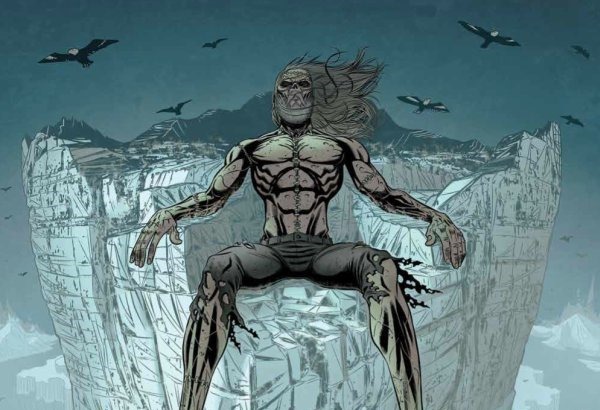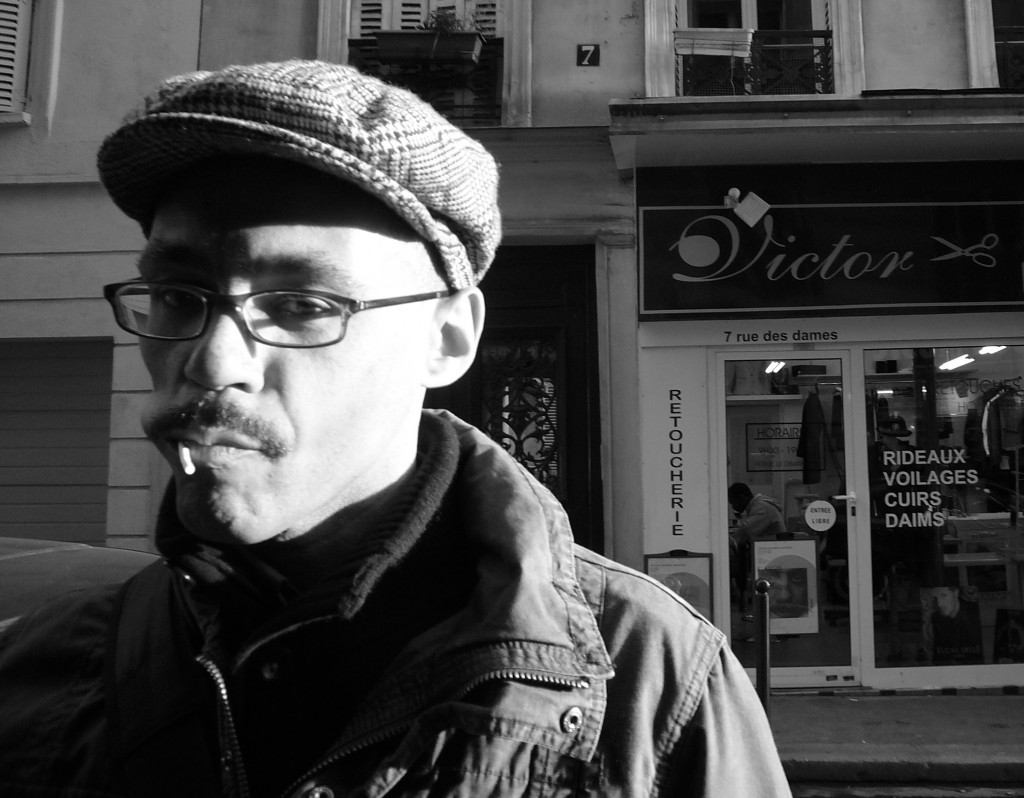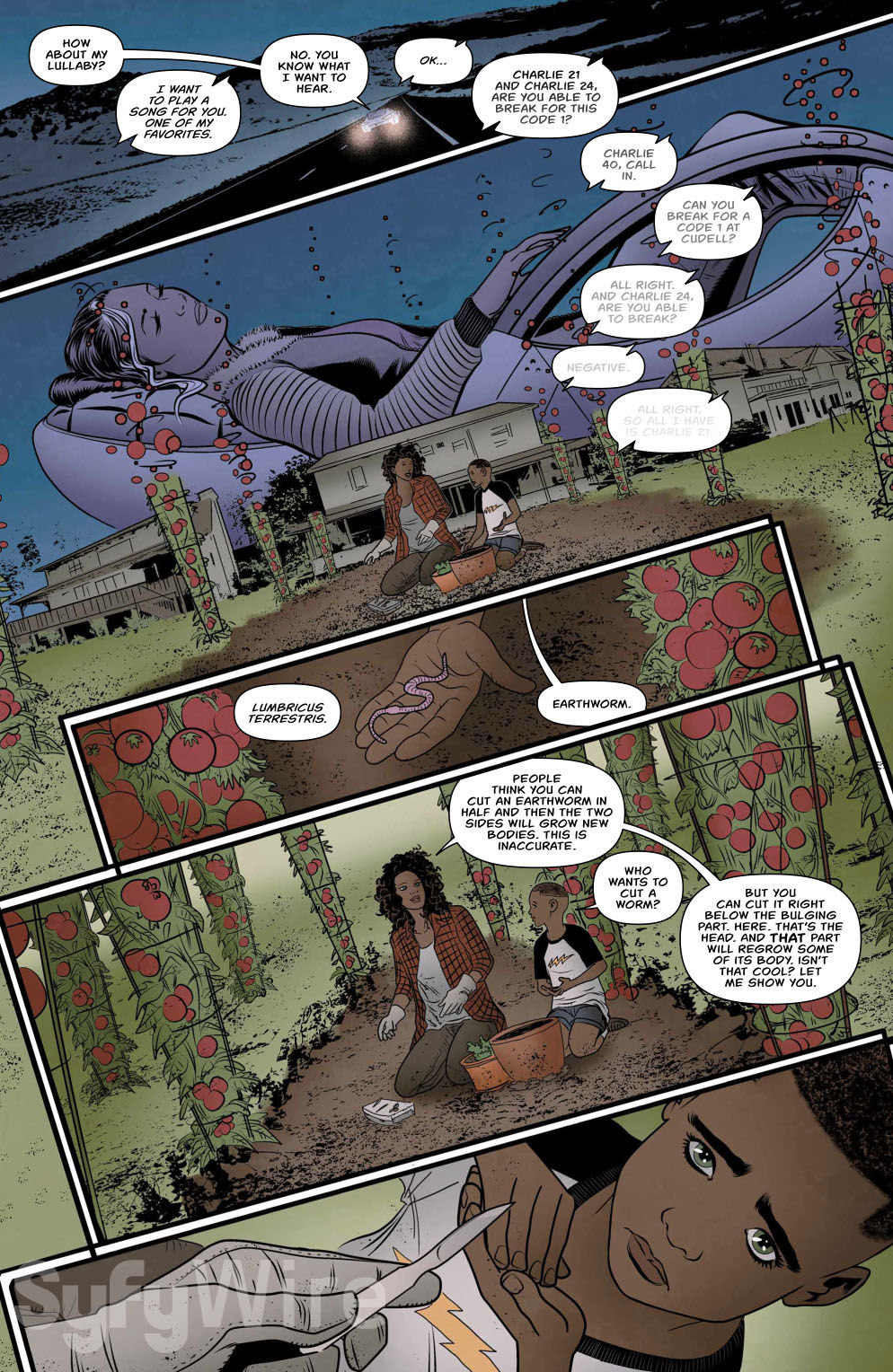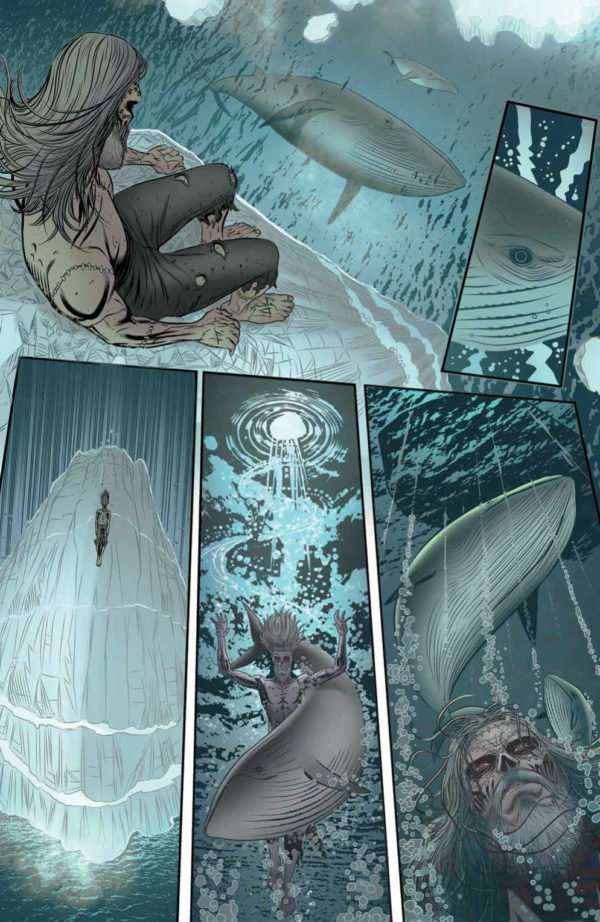Victor LaValle is Destroying Comics
https://thenerdsofcolor.org/2017/05/24/victor-lavalle-is-destroying-comics/
I had the utmost pleasure interviewing Victor LaValle about his upcoming comic, Destroyer, from BOOM! Studios. It drops today, May 24, 2017.
[Can we take a moment to admire BOOM!’s roster? I’ve already written about one of my all time favorite books. They are on an astonishing creative trajectory. I’ve yet to read a bad book from them. If you’re trying to convert someone to the comics life, get them a first issue from any BOOM! title. They’ll be hooked.]

Destroyer is a (more than worthy) sequel to Mary Shelley’s 1818 novel, Frankenstein. It is written with loving and respectful nods to Shelley’s original work, but takes the story of a modern Prometheus in a contemporary direction that is as welcomed as it is unexpected. I will not spoil it here because I want you to get it today.

Here is my all too brief interview with one of the most inventive minds working in fiction today, Victor LaValle.

SHAWN: I’ve heard from numerous sources that Frankenstein is either an exemplar of feminist thought or it is an anti-feminist text. Did you take into account any of the political interpretations when crafting this story?
VICTOR: I definitely think of Frankenstein as a political novel. One of the most interesting things about it is that some of its own politics is at war with another part of it. I think this is why it could be considered both feminist and anti-feminist. It’s also a cautionary tale about the dangers of scientific arrogance, but at the same time it’s clear the novel is impressed by Victor’s sense of ambition and his embrace of scientific ideals. In other words I liked that politics are there but the messages aren’t simple. I definitely wrote this comic in much the same vein. From one issue to the next I hope my ideas are in conversation with each other, even arguing with each other, rather than just having a single point and sticking to it.
What was it like working with Dietrich Smith and Dan Mora?
Both Dietrich and Dan are marvels. It sounds silly but as a prose writer I just didn’t understand the kind of magic a truly talented illustrator could produce. In both their cases they took whatever idea I’d had and amplified it, reimagined it, in ways I couldn’t have anticipated, and always to the better.

How important do you think horror or horror-adjacent art is to our collective culture?
Well there’s a reason horror just won’t go away. Even as it’s dismissed as low brow or cheap that need for horror seems hard wired into the general population. Hell, there’s high brow horror like Beloved or Moby Dick so it’s hardly alien to the highbrow end of art either. I like to think of this genre as a lock pick that can be used to quickly get past the defenses of the intellectual or the rational. Good horror doesn’t give a damn about what you think, it only wants to make you feel. (And sometimes think.) What culture doesn’t need that?
Destroyer. Are we talking total annihilation or are we talking destruction with the goal to rebuild from the ashes?
Some members of this cast want to destroy, full stop. They seek the utter annihilation of the human race because the human race has proven itself incapable of being worth a damn. And then there’s one character, the youngest, the boy/android Akai, who still holds on to a sense of potential on the part of humanity. He’s got a tender heart and it’s the only chance humanity has got to survive.

There has been some… hubbub… about novelists writing comics. Some say, ‘Finally. We’ll get a better class of writing.’ Other folks complain, ‘They should stay in their lanes. This is a completely different art form.’ Kind of like Samuel L. Jackson complaining about rappers who want to act. Do you have any thoughts about this?
There’s lots of shitty writers in the world, whether you’re talking about fiction or comics. I write fiction and I read comics so I know neither world has a monopoly on mediocrity. What I do find true is that a talent for fiction writing doesn’t automatically mean there’s a talent for writing comics. The two are not the same. My greatest frustration, when reading novelists who try comics, is that they don’t know how to let the images do any work. Instead they have panel after panel of people yapping constantly, explaining everything. Essentially it’s just prose with pictures. I think that if you enter the new medium with an understanding of this essential difference — it’s a visual medium and the writer must serve the image as much as the words — then it’ll probably work out all right.
Was the creative process different for Destroyer than, say, The Ballad of Black Tom or The Devil in Silver? What were the similarities and/or differences?
Back to visual storytelling. The biggest difference is that I didn’t think of the words first, I thought of the story then I tried to translate that story into panels/images. (As best I could imagine them.) By coming at it this way I could be much sparer with the dialogue. It was somewhat new but really freeing. I was collaborating with someone else (with quite a few people actually) and it would work best when I thought of the creation of the comic in this way. That’s very different from writing prose where, in the end, most of the weight (and credit) goes to me. Though even there I’ve got an editor, agents, readers who help a great deal.
Obligatory Black Man in comics question: Destroyer has been called Black Lives Matter filtered through a Frankenstein lens. Do categorizations like this expand or contract your work? What I’m trying to say is, does having your race and your racial politics emphasized over the story and your considerable storytelling ability impact you in any way?
I tend to think that issues of race or gender or sexuality are woven into every comic, but by keeping them unstated a kind of camouflage occurs. I find that camouflage troubling. It matters that Bruce Wayne is a white billionaire who beats up people who are either mentally ill and/or poor. If I state his story that way the problematic politics of calling him a clear-cut hero become clear. So what’s gained when we don’t say it that way? What aspects of that story are we being taught we shouldn’t question?
So I’m happy to have my race and/or racial politics mentioned overtly if only because I do want my readers to consider them consciously, in part because those concerns are running against a more generalized political current in comics that goes as far back as when two Jewish immigrants felt that their ideal super hero had to be a white man from Kansas whose only real goal in life was to prove he could be a “good American,” an immigrant who wouldn’t cause any trouble. I love Superman, but that’s some fucked up thinking. We should be wrestling with all of that, often and openly. Or, at least, that’s the kind of stuff I want to write, and read.
The Ballad of Black Tom. What the hell were you thinking? I was reading it, at night, when my wife entered the bedroom. I had my earplugs in, was so engrossed in the book, I had no idea she was there. She touched my leg and I lost my… everything. I had to sleep on the couch that night. What compelled you to marry Lovecraft with the folkloric Black Harlem musician-cum-grifter? Has your work ever given you nightmares?
I can’t imagine a higher compliment than to think I made you that scared! Really, that’s a highlight of a writing life. As for what I was thinking, I wrote that novella in the summer of 2015. Michael Brown had been murdered in 2014. Tamir Rice. Akai Gurley. Yvette Smith. Rekia Boyd. That list is so long and it keeps getting longer. Anyway, it was the summer of 2015 and I felt worn out and angry and one of the places I could direct all that energy was into a book. I also happened to be rereading the fiction of H.P. Lovecraft at the time. One of the all-time great horror writers and an equally awful racist. I had an inspiration to channel those feelings into the vessel of a Lovecraft story. Maybe because the worst parts of him that were on display then were still on full display in 2015.
Two part question. Forget emcees. What are your Top Five favorite monsters or horror tropes? Feel free to mix them up. Part Two: Out of your choices, which monster or trope do you feel still has something to say to us? What would it tell us?
Top Five Favorite Monsters:
1.) The alien from John Carpenter’s The Thing.
2.) Frank Booth from Blue Velvet
3.) Pazuzu, the demon from The Exorcist
4.) Eddie Quist from The Howling
5.) Calibos from the original Clash of the Titans.
Of these five I’d have to say the one who remains the most fully frightening is Frank Booth from Blue Velvet.

It’s so unhinged, he’s feral and monstrous, but he’s not simple. He’s complex in his evil and ugliness and yet he has no powers beyond his own rage. For that reason I can’t shake him off by saying there’s no such thing as werewolves or shapeshifting aliens or Pazuzu. Frank Booth is real. He’s out there in the world. And there’s more than one of him. I can’t think of anything more terrifying, in the truest sense, than that.
You can purchase Destroyer here. Put it on your pull lists.
